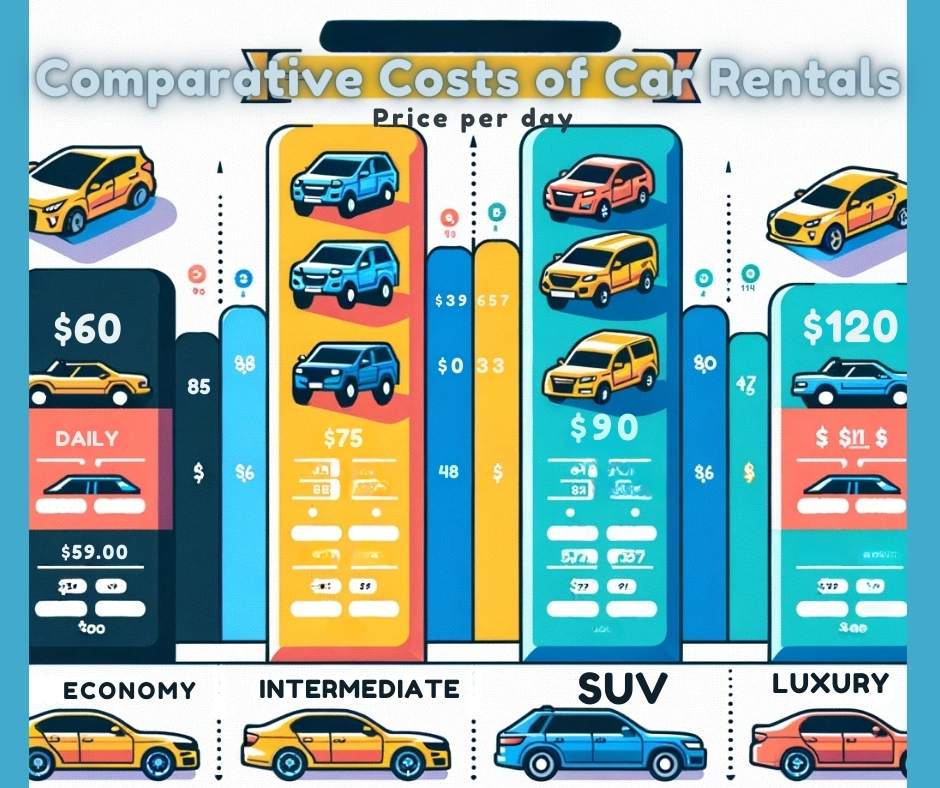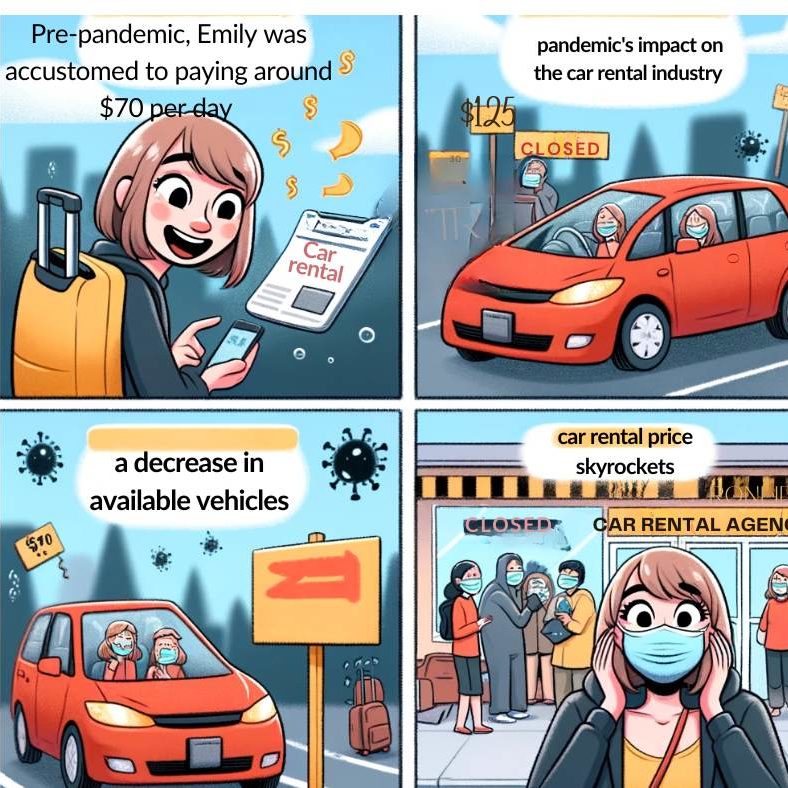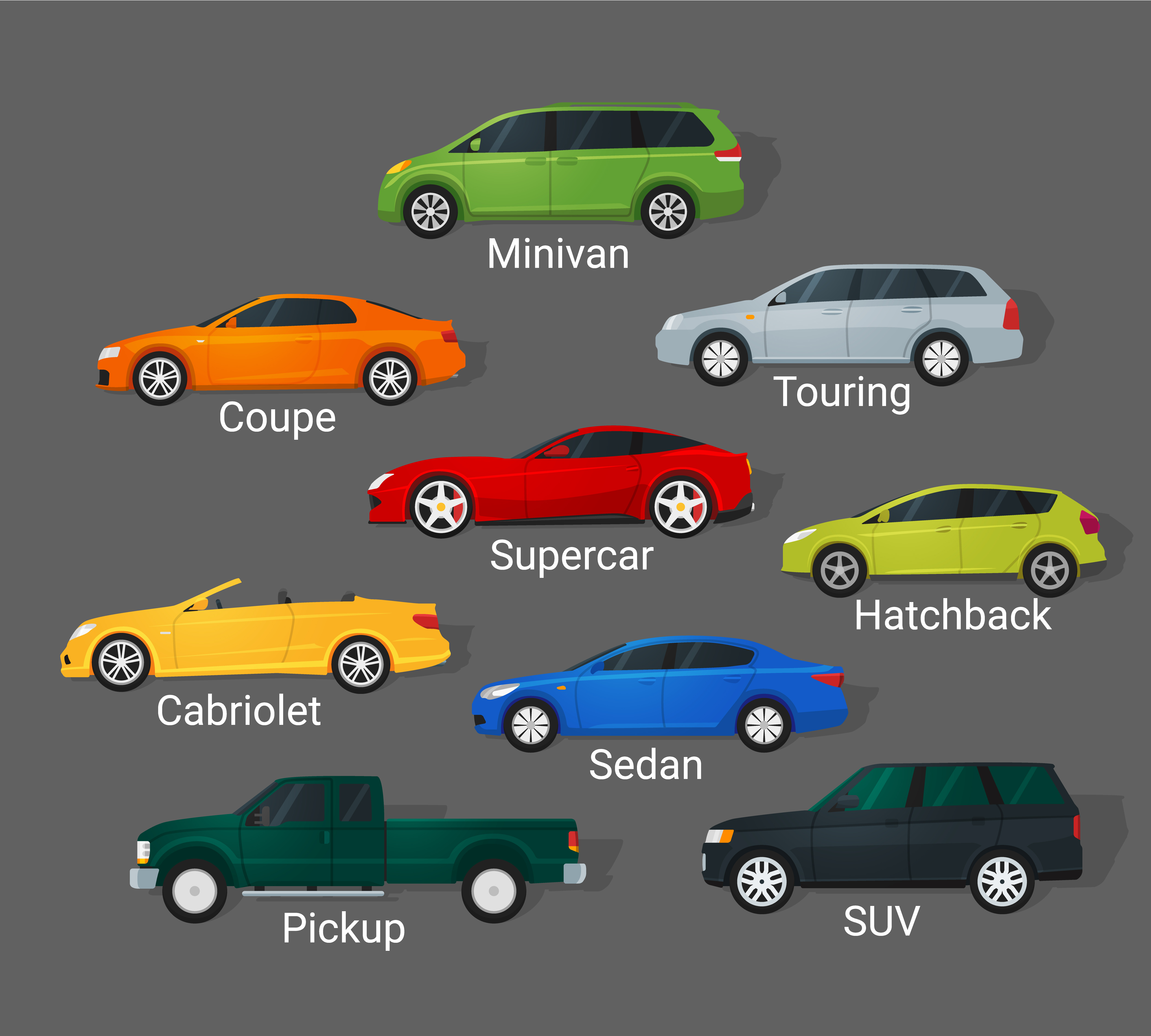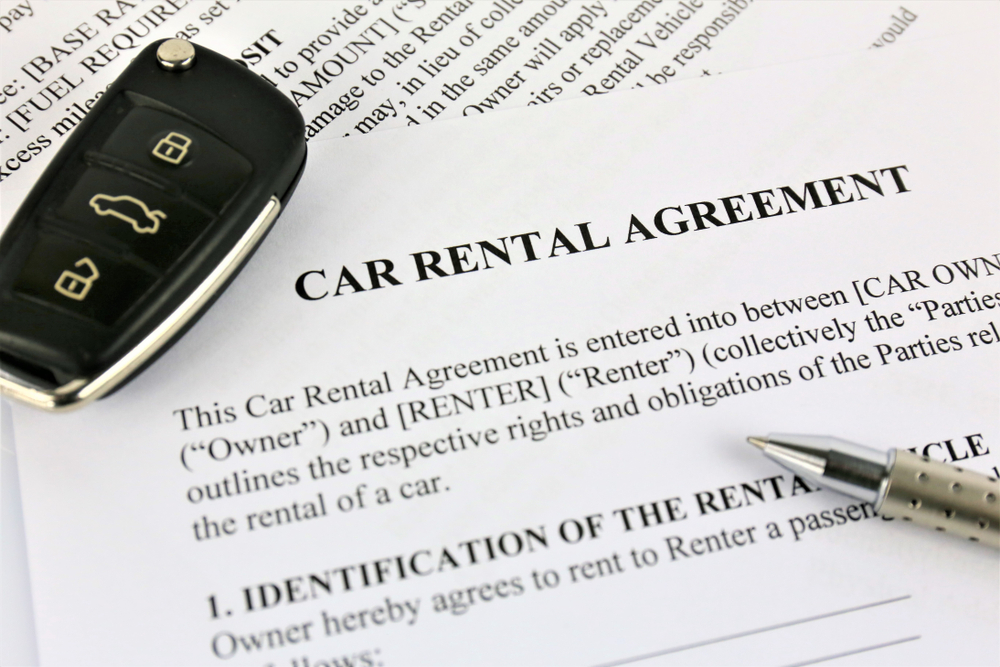Do you have any idea how first-time car rental works? Relax, here is the best guide if you want to know more about beginner’s car hire!
Embracing the Journey of First-Time Car Rental
Embarking on your first car rental journey can be both exhilarating and a bit daunting. It’s an adventure that promises freedom and flexibility, especially for travelers eager to explore at their own pace. However, for beginners, navigating the world of car rentals can seem overwhelming.
Understanding the basics of car rental is crucial. It helps you make informed decisions, avoid common pitfalls, and ensure a smooth experience.
This guide is your roadmap to confidently stepping into the world of car rentals, equipped with the knowledge to make your first journey a memorable one.
For expert advice on navigating car rentals, explore our concise guide on the top car rental mistakes to avoid. This resource is packed with practical tips for new drivers, helping you make informed choices and enjoy a hassle-free rental experience.
Discover more at Car Rental Reviews here.
Preparing for Your First Car Rental
When planning your first-time car rental, several key factors come into play. It’s not just about picking any car; it’s about finding the right fit for your needs and budget. Let’s break it down:
Assessing Your Needs and Budget

Firstly, consider why you’re renting the car. Is it for a leisurely road trip or a business engagement? This will guide your choice of vehicle. Next, think about your budget. Remember, the cost of renting goes beyond the price tag of the car – it includes fuel, insurance, and possible additional fees.
Understanding Rental Duration and Documentation
The length of your rental is crucial. Different durations, from a few days to a week or more, can significantly impact the cost. Be sure to have the required documentation, typically a driver’s license and credit card, ready.
Checklist for Car Rental Preparation
| Requirement | Details |
|---|---|
| Budget | Factor in rental, fuel, insurance, and extra fees. |
| Vehicle Type | Choose based on trip purpose (e.g., road trip, business). |
| Rental Duration | Decide between daily, weekly, or longer rentals. |
| Documentation | Have your driver’s license and credit card at hand. |
For more detailed insights on each of these points, visit the AAA’s pages on on Car Rental.
Understanding Car Rental Requirements and Costs
Embarking on your first car rental adventure comes with its set of rules and costs. It’s not just about picking the keys and hitting the road; there are age requirements, necessary documents, and varying rental rates to consider.
Age Requirements and Documentation
Most car rental companies have a minimum age requirement, typically 25 years. For younger drivers, there might be additional charges or insurance requirements. Equally important are the documents you need to present: a valid driver’s license and a credit card are usually mandatory.
Rental Rates and Current Events

The cost of renting a car depends on multiple factors such as the car’s size, rental duration, and the renter’s age. In recent years, the car rental industry has witnessed fluctuations in pricing due to various external factors.
For instance, J.D. Power’s 2023 North American Rental Car Satisfaction Study indicated a slight increase in the average per-day rental price from $90 in 2022 to $91 in 2023.
This increase in satisfaction and price stabilization is partly due to improved vehicle availability post-pandemic. However, ongoing labor and economic instabilities, like the UAW strike, might influence future prices and availability.
The Pandemic Effect

Consider the story of Emily, a frequent traveler who noticed significant changes in car rental prices during and after the pandemic.
Pre-pandemic, she was accustomed to paying around $70 per day for a standard car. However, during a recent trip, she was surprised to find the rates had almost doubled.
This spike was a direct result of the pandemic’s impact on the car rental industry – a decrease in available vehicles due to production delays and increased demand as travel resumed.
Comparison of Rental Costs by Car Type and Duration
| Car Type | Daily Rate | Weekly Rate |
|---|---|---|
| Economy | $60 | $350 |
| Intermediate | $75 | $450 |
| SUV | $90 | $550 |
| Luxury | $120 | $700 |
For an in-depth look into affordable car rental options and more cost-saving tips, visit Cheap Car Rentals: Your Ultimate Guide.
Choosing the Right Car and Understanding Rental Agreements
Selecting the ideal car for your rental needs involves balancing comfort, budget, and practicality. Each vehicle class offers unique benefits catering to different travel requirements.
Selecting Car Size and Vehicle Class

- Economy: Example: Toyota Yaris – compact and fuel-efficient, perfect for city trips and solo travelers. Toyota Yaris
- Intermediate: Example: Honda Accord – a comfortable sedan for small groups or families. Honda Accord
- SUV: Example: Ford Explorer – spacious and sturdy for family road trips. Ford Explorer
- Luxury: Example: Mercedes-Benz E-Class – for a premium driving experience with advanced features. Mercedes-Benz E-Class
For a comprehensive guide on different car types, visit Nationwide Auto Transportation.
Understanding Rental Contracts
- One-Way Contract: Ideal for traveling from one city to another without returning to the starting point.
- Round Trip Contract: Best for trips where you return to your initial location.
- International Contract: Suitable for driving across country borders, but requires awareness of different driving laws and insurance needs.
For reviews and comparisons of rental companies, check out:
The Car Rental Process – Step by Step

Going on a car rental journey can be straightforward and hassle-free with the right guidance. Here’s a unique and helpful step-by-step checklist to navigate the car rental process:
- Research and Compare: Start by researching different car rental companies. Compare prices, vehicle availability, and customer reviews.
- Choose the Right Car: Based on your needs, select the appropriate car class. Consider factors like fuel efficiency, space, and budget.
- Book Your Car: Once you’ve chosen a company and car, book it. You can do this online or over the phone. Remember to check for any discounts or deals.
- Understand the Terms: Carefully read and understand the rental agreement, including policies on mileage, fuel, and insurance.
- Pick-up Process: Arrive at the rental location, present your documents (license, credit card), and complete any remaining paperwork.
- Inspect the Car: Before driving off, inspect the car for any existing damage and ensure it matches the description in your agreement.
- Enjoy Your Ride: Drive safely and enjoy your journey, adhering to all the rental policies and traffic rules.
- Return the Car: Refill the fuel tank (if required) and return the car at the agreed time and location. Inspect the car with an agent to ensure everything is in order.
For more detailed insights on each of these steps, check out this comprehensive guide by Enterprise Rent-A-Car.
Insurance, Mileage, and Other Considerations
Navigating the nuances of car rental insurance and understanding mileage options are crucial to a hassle-free car rental experience. Let’s delve into these aspects with a detailed, user-friendly approach.
Car Rental Insurance Options and Necessities

- Do You Need Insurance? While not mandatory, rental agencies usually offer minimal coverage. Opting for additional insurance can protect you from significant expenses in case of an accident.
- Personal Auto Insurance Coverage: Often, your personal auto insurance extends to rental cars for personal use. It’s vital to confirm this with your insurer, especially regarding comprehensive and collision coverage.
- Loss-Damage Waiver (LDW): This waiver, offered at the rental counter, shields you from financial responsibility for rental car damage or theft. It’s crucial if your personal insurance doesn’t cover rentals.
- Supplemental Liability Protection: This covers damages to others’ vehicles or property caused by you during the rental. Essential if your policy lacks sufficient coverage.
- Personal Accident Insurance: Covers medical costs for you and your passengers in an accident. Check if your existing insurance or health insurance covers this.
Mileage Options and Restrictions
Understanding the mileage policy of your rental agreement is crucial. Some rentals offer unlimited mileage, allowing you to travel without worrying about extra charges. However, others might impose a mileage cap, leading to additional fees if exceeded.
Credit Card Coverage
Many credit cards offer rental car coverage, especially useful overseas where your personal insurance might not apply. This coverage is usually secondary, meaning it kicks in after your personal insurance. Always confirm the specifics with your credit card issuer.

Standalone Policies
If you prefer not to use the rental agency’s insurance, standalone policies are available from companies like Allianz Global Assistance and Bonzah. These policies often provide primary coverage and can be more cost-effective.
“Understanding your coverage options is essential in car rentals. It’s not just about protection, it’s about peace of mind,” notes an insurance expert from American Insurance Agency.
For further insights on rental car insurance claims, visit Rental Car Insurance Claims.
Saving on Rental Costs and Avoiding Hidden Fees

Navigating the costs associated with a first-time car rental can be tricky, but with the right know-how, you can save money and avoid those pesky hidden fees.
Tips for Economical Car Rental
- Book in Advance: Reserve your car early to lock in better rates, especially outside peak travel seasons.
- Compare Prices: Use comparison websites to find the best deals across different rental companies.
- Beware of Extra Costs: Pay attention to additional fees like insurance, extra drivers, or GPS systems. Sometimes, these extras can significantly increase your total cost.
- Refuel Yourself: Fill up the tank before returning the car to avoid high refueling charges from the rental company.
- Check for Discounts: Look for promotional codes or discounts through loyalty programs, AAA memberships, or credit card offers.
“As the car rental industry evolves, understanding the finer details of rental agreements is key to avoiding unexpected charges,” says a spokesperson from Car Rental Reviews.
Additional Tips and Tricks for First-Time Renters
As a first-time car renter, paying attention to details can significantly enhance your rental experience.
Importance of Car Inspection
- Pre-Rental Inspection: Thoroughly inspect the car for any existing damage before you start your journey and document it.
- Post-Rental Inspection: Repeat the inspection when returning the car to avoid charges for pre-existing damage.
Understanding Fuel Policies and Documentation
- Fuel Policy: Know the policy for refueling; it’s usually cheaper to refill the tank yourself.
- Essential Documents: Always have your driver’s license, credit card, and any necessary insurance documents handy.
Loyalty Programs and Vehicle Upgrades
- Join Loyalty Programs: They often offer perks like free upgrades, quicker checkouts, and discounts.
- Consider Upgrades: Sometimes, upgrades can be cost-effective, especially during off-peak seasons.
Personal Anecdote
“During my first car rental, I meticulously planned each detail, from vehicle selection to insurance coverage. This foresight saved me from unexpected costs and made my road trip immensely enjoyable,” shares a seasoned traveler.
Key Takeaways for First-Time Car Rentals
| Key Points | Why It’s Important |
|---|---|
| Choose the right vehicle | Ensures comfort and cost-effectiveness. |
| Understand rental agreements | Avoids misunderstandings and additional charges. |
| Opt for suitable insurance | Protects against unforeseen expenses. |
| Be aware of fuel policies | Saves money on refueling costs. |
| Consider loyalty programs | Offers benefits and potential savings. |

For more in-depth advice and resources on car rentals, don’t hesitate to explore Car Rental Reviews.
They offer a wealth of information to help you make the most of your first car rental experience.
FAQ Section for First-Time Car Rental
- What documents do I need for a first-time car rental? Answer: Typically, you’ll need a valid driver’s license and a credit card. Some rental companies may also require additional identification or proof of insurance.
- How can I find the best deals for first-time car rentals? Answer: Compare prices online, book in advance, and check for discounts or promotional codes. Websites that compare rental rates can be particularly helpful.
- Are there age restrictions for renting a car for the first time? Answer: Yes, most rental companies require renters to be at least 25 years old. Younger drivers might face additional fees or insurance requirements.
- What type of insurance should I consider for a beginner’s car hire? Answer: Consider options like a Loss-Damage Waiver, personal accident insurance, and supplemental liability protection. Your personal car insurance or credit card might already offer rental coverage.
- Is it more cost-effective to rent economy or luxury vehicles for first-time renters? Answer: Economy cars are generally more cost-effective, especially for short trips or city driving. However, consider your travel needs and comfort when choosing a vehicle class.
“Struggling to find the perfect balance between quality and affordability in car rentals? Our latest article on Car Rental Reviews provides essential tips and insights on how to choose economical car rentals without compromising on quality. Discover the secrets to savvy car hiring and make your next trip both affordable and enjoyable. Click to learn more and elevate your car rental experience!”
